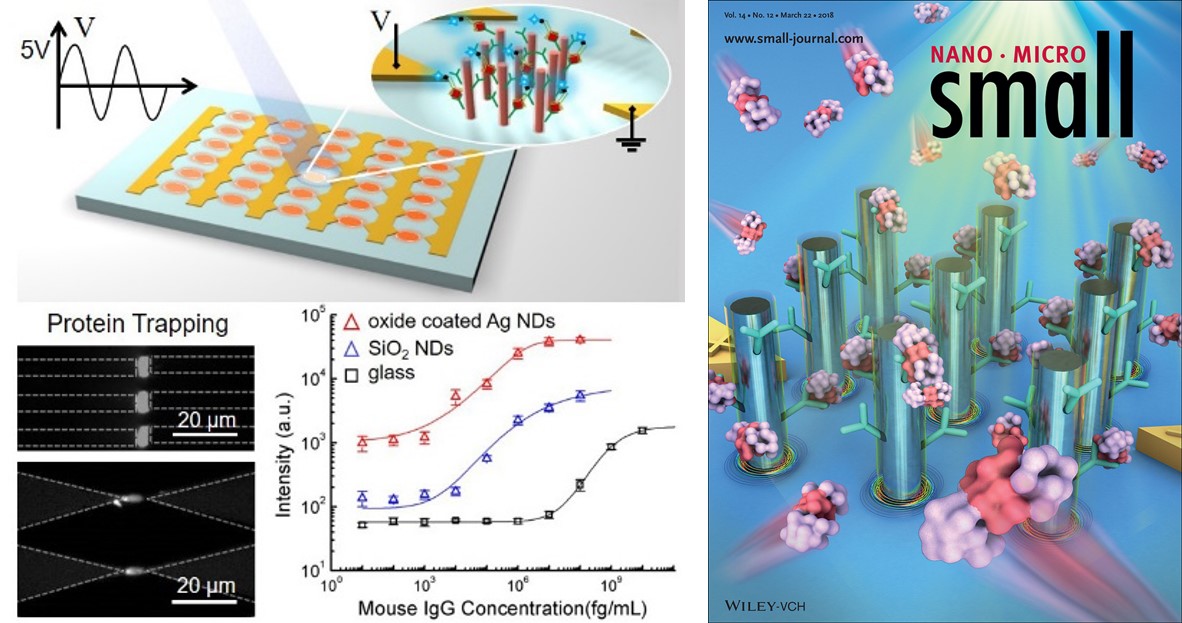The sensitivity of bio-markers is a determining factor for early diagnosis. The conventional method bonds the specific antibody with the antigens in the sample, and then uses fluorescent to mark the content. The content is measured for the diagnosis. But the long diagnostic gap between the process and the outcome, together with the target concentration requirement, makes the method non-ideal for early diagnosis.
To solve the problem, Cao Zhen and his group from ISEE took advantage of the manufacturing procedures for microelectronics. They created a Lab-on-a-chip system, using controllable nano-structures to enrich the protein content from the sample. The proteins are collected on the chip under control. This method improved the sensitivity of the diagnosis and greatly reduced the diagnostic gap. Under the condition of 5V voltage, the chip can enrich bovine serum albumin (BSA) 1800 times in just ten seconds. It is the fastest enrichment chip known currently. Apart from above, using the pre-fixed antigen, the chip can detect immunoglobulin G with a sensitivity of ten to fifteen femto-Molar, which is twenty thousand times more sensitive than the conventional method, meanwhile the the diagnostic gap is shortened from hours to within a minute. The chip also succeeded in detecting the prostate-specific antigen (PSA) from the serum, which is of great importance for early diagnosis for prostate cancer.
The article is published on Small with an influence factor of 8.6. It is highlighted and selected as the inner cover for the journal. ( https://onlinelibrary.wiley.com/doi/abs/10.1002/smll.201870050 ) The research was done with support by and in cooperation with Hong Kong Baptist University, Suzhou Institution for Nanotechnology. It received funding for basic research in universities (2017QNA5005) by the central government.
1
1

